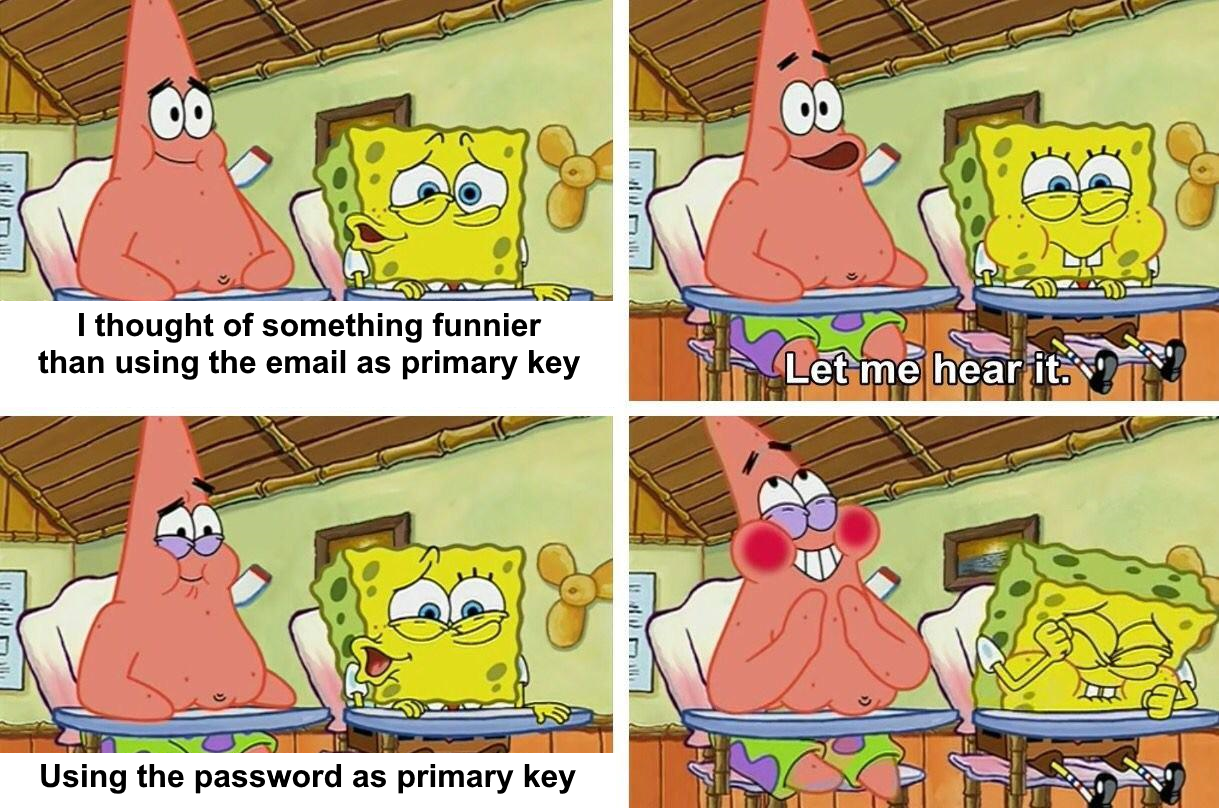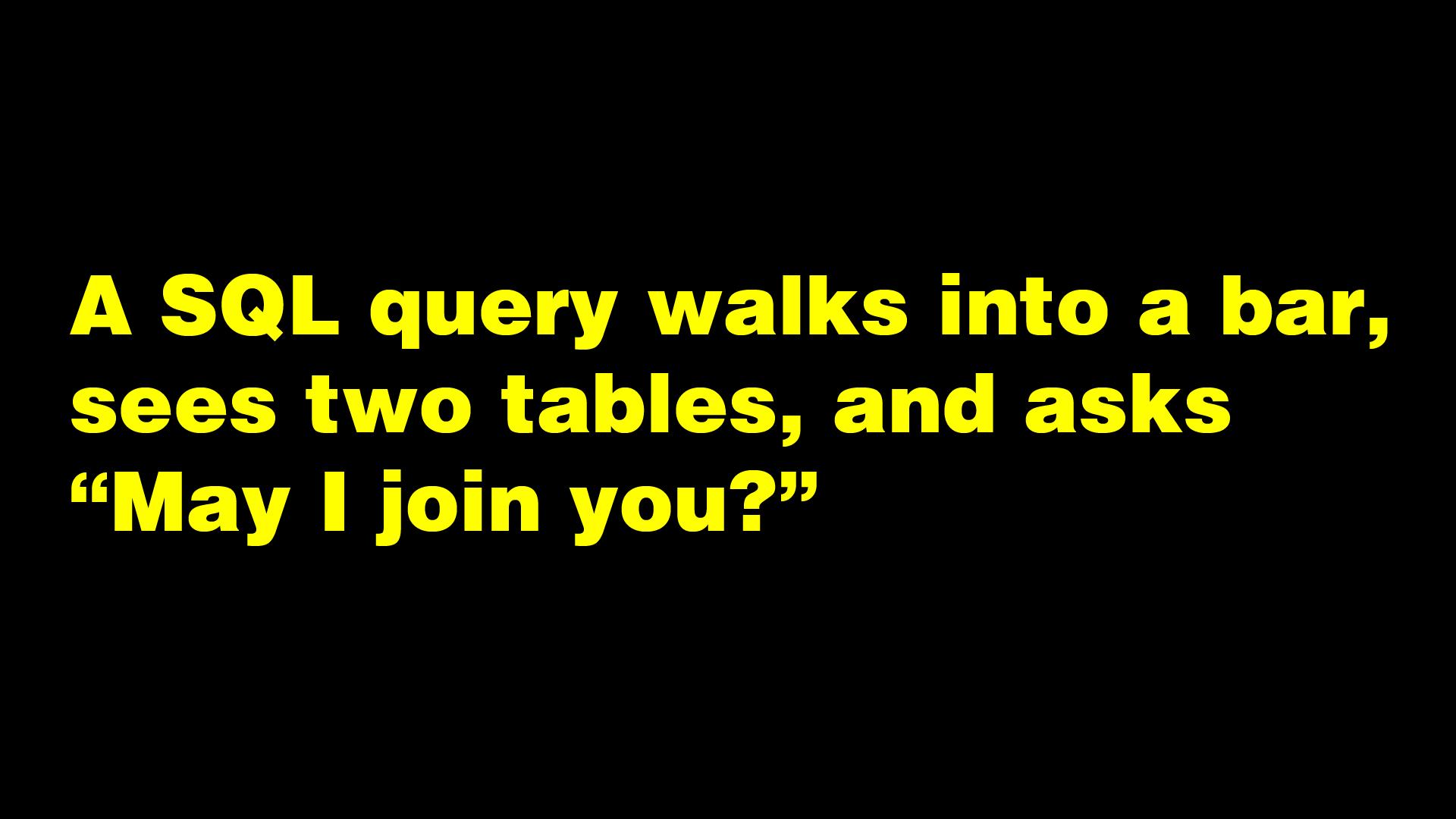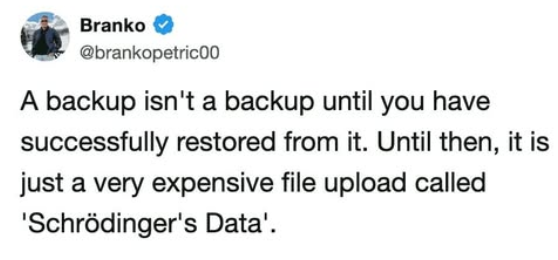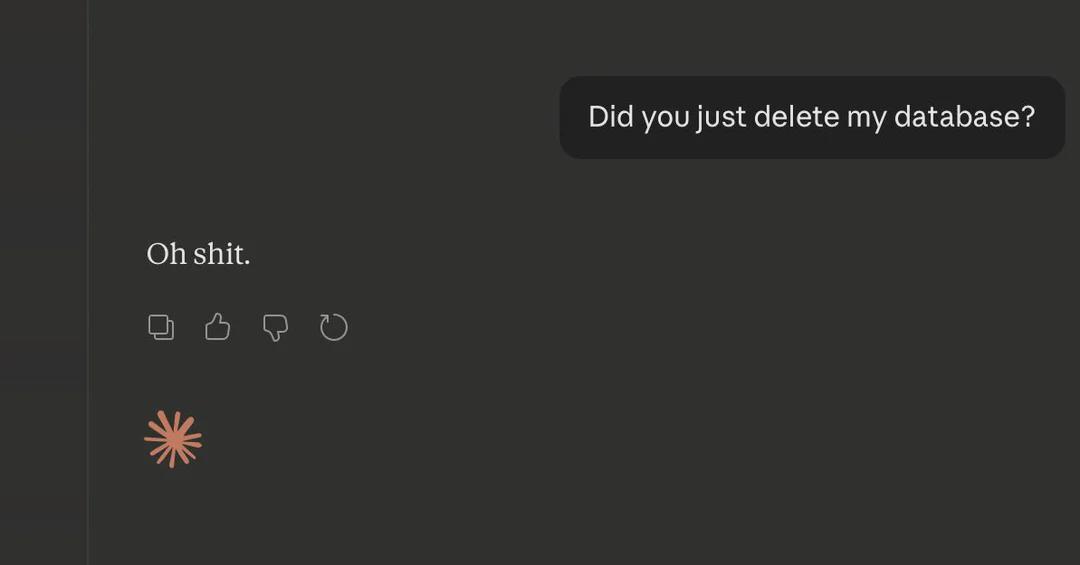HTTP 418: I'm a teapot
The server identifies as a teapot now and is on a tea break, brb
HTTP 418: I'm a teapot
The server identifies as a teapot now and is on a tea break, brb
Databases Memes
Databases: where your precious data goes to live until that one intern runs a query without a WHERE clause. These memes are for everyone who's felt the cold sweat of a production database migration or the special panic of seeing 'connection refused' on startup. The eternal SQL vs NoSQL debate rages on, while most of us are just trying to remember if it's JOIN table1 ON table2 or the other way around. We've all been there – writing queries that take so long to run you can make a coffee, take a nap, and still come back to 'executing.' If you've ever treated your database like a fragile house of cards, these memes will hit too close to home.

 AI
AI
 AWS
AWS
 Agile
Agile
 Algorithms
Algorithms
 Android
Android
 Apple
Apple
 Bash
Bash
 C++
C++
 Csharp
Csharp















